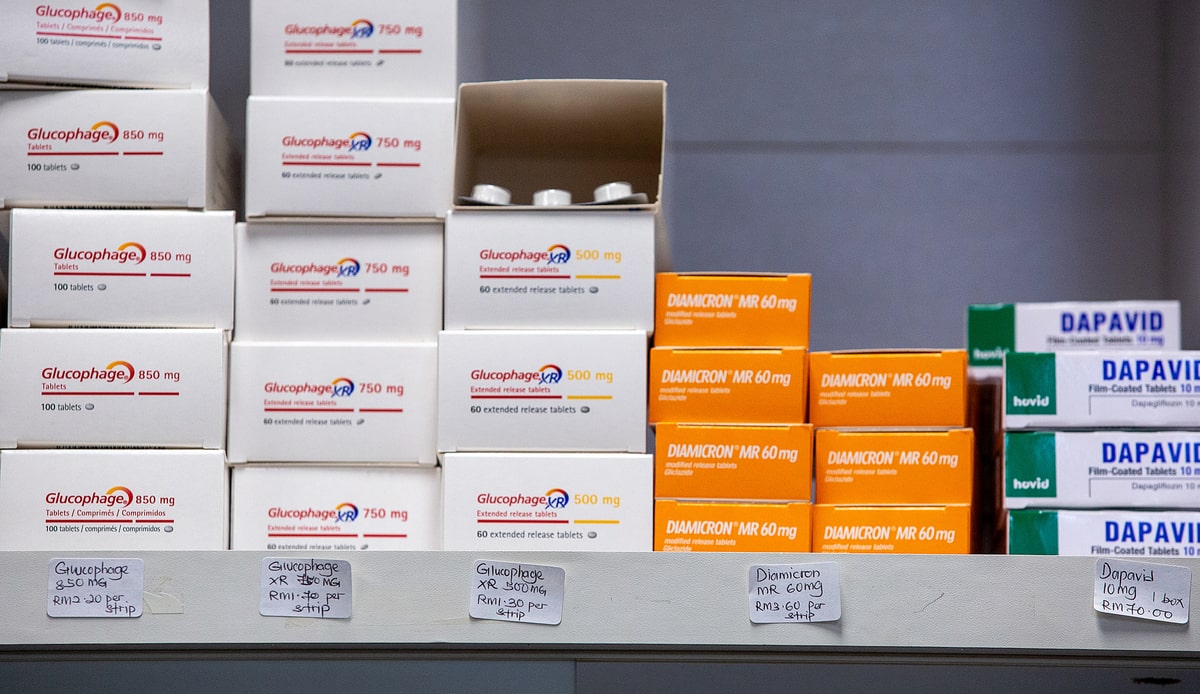KUALA LUMPUR, Sept 26 — The Malaysian Medical Association (MMA) has sharply criticised blanket generic-only mandates by third-party administrators (TPAs) for private health care providers.
MMA said policies that covered only generic medicines were unacceptable as these risked undermining a doctor’s professional ethics, patient rights, and true non-communicable disease (NCD) care.
The country’s largest doctors’ association pointed out that the Private Healthcare Facilities and Services Act 1998 (Act 586) and the Ministry of Health’s (MOH) Managed Care guidelines expressly prohibit managed care organisations (MCOs) and TPAs from interfering in clinical decision-making.
“Formularies may serve as guidance, but they cannot dictate care,” said MMA president Dr R. Arasu in a statement today.
“Patients also have the right to informed choice. While generics may be suitable in most cases, there are situations, such as narrow therapeutic index medicines or where intolerance has occurred, where a specific brand is clinically necessary.
“In such circumstances, it is the doctor’s responsibility to prescribe what is safest and most effective for the patient. Any substitution must be explained and consented to.”
CodeBlue recently reported a directive from a TPA, on behalf of a bank, that mandated panel clinics, hospitals, and pharmacies to limit the bank’s employees to generic versions for long-term medications.
The TPA’s instruction, which came into effect last September 1, required that prescriptions list only the active ingredient.
“By requiring doctors to prescribe only by active ingredient, the practical effect is to shift control over the choice of medicine from the doctor to the corporate payer,” said MMA, which represents general practitioners (GPs), besides government doctors.
“This opens the door for procurement-driven decisions, where specific generic brands may be pre-selected based on commercial arrangements rather than clinical judgment.
“Such policies may appear minor at first, but slowly and surely, commercial interests will override clinical judgment. When this happens, the patient’s best interest, which must always be the doctor’s first priority, is compromised.”
MMA also pointed out that the main challenge with NCDs like diabetes, heart disease, and cancer – which cost Malaysia nearly RM10 billion annually – wasn’t medicine prices, but complications arising from poor lifestyle management and late detection.
“True solutions must focus on prevention and behaviour change, not procurement savings,” said Dr Arasu.
He added that MMA has warned the government for nearly three decades since 1998 that these problems would arise without proper regulation of TPAs and MCOs. The lack of regulation of TPAs, said Dr Arasu, was “shocking and inexcusable”.
“Unfortunately, while the government has chosen to micromanage the profession, it has consistently failed to regulate these entities. Such circulars are the direct result of this neglect, and they threaten to erode the trust at the heart of the doctor–patient relationship,” said MMA.
“The way forward is clear. Policies must encourage the use of generics as the first option but must never impose a generic-only rule. Doctors must retain the freedom to exercise their professional judgment, and patients must remain fully informed and empowered.”
Association of Private Hospitals Malaysia (APHM) president Dr Kuljit Singh told CodeBlue in a recent interview that blanket generic-only policies from TPAs or insurers for private hospitals risked compromising patient care.
MOH does not have the legal authority to mandate a generic-only policy for private hospitals for cost-containment purposes, as the ministry’s regulatory functions over private health care facilities only cover facility standards under Act 586.
MOH’s generic-first (not generic-only) policy merely applies to its own health care facilities – as a health care provider funded by the government, unlike private hospitals or clinics whose patients are either covered by health insurance or self-pay.
The only aspect of private health care costs regulated by the government is doctor fees under Act 586.

